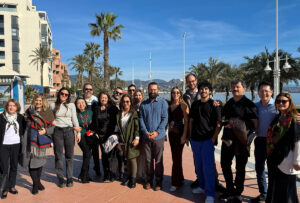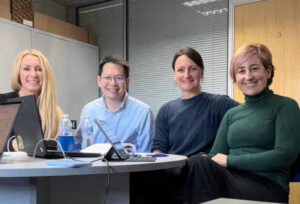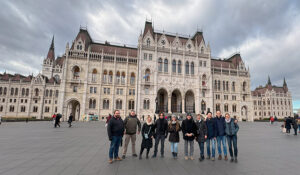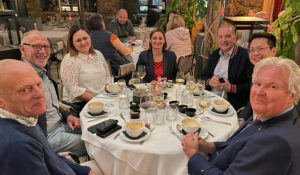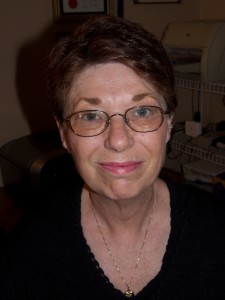 Dr Jill Kiefer is the director of Warnborough’s Fine Arts, Art History and Film, Television and Radio Studies programs. She also acts a mentor to individual students. Jill gave us a few minutes of her time to talk about being a mentor and about Warnborough’s arts programs.
Dr Jill Kiefer is the director of Warnborough’s Fine Arts, Art History and Film, Television and Radio Studies programs. She also acts a mentor to individual students. Jill gave us a few minutes of her time to talk about being a mentor and about Warnborough’s arts programs.
Can you say something about your own art?
The actual work that I do in terms of art is quite varied because it is influenced a lot by art history and who I am studying at that moment. That can dictate what I choose to paint and the style I choose to paint in.
Is there much difference between Warnborough’s Cultural Art History program and other Art History ones?
It’s very similar in that all art history involves looking at art in the context of the culture in which it was created, or perhaps the culture which influenced it. However, our art program is a little more steeped in that cultural context.
What advantages are there of distance learning over traditional learning?
One of the advantages to distance learning is that students who are adults with families, and often working full-time, have great difficulty in attending traditional academic programs. Our programs are much more flexible. Most of the students in the graduate programs that I lead are professionals who are working.
You are also a mentor. Can you tell us about your role as one?
The mentor acts as an advisor and also as a teacher. I ‘meet’ regularly with my students on Skype and we discuss various topics that are related to their assignments and their projects. In between meetings, we exchange materials. For example, I exchange a lot of Keynote or Powerpoint presentations with my students that they can examine in our regular class meetings.
In many ways, our programs are structured in ways that an onsite program is – it’s just that we can be very flexible in terms of the scheduling. We also offer the dimension of giving professional advice, helping the student to establish his or herself in a career position once the program’s been finalised.
Do you have any advice to students considering doing a distance learning degree, from a mentor’s perspective?
The student needs to be self-motivated because it is up to them to do their research in between our scheduled meetings. If that doesn’t happen, it can be a problem. If there is some kind of family situation or a personal crisis, then we try to work that through and schedule things so that it might be accommodated. Most of my graduate students tend to be very self-motivated. It’s very rare for a student to not complete the program.
Can you give an example of a student you have mentored recently?
I have one student who is finishing up now and has conducted a lot of research in women artists working in the New Mexican community of Taos. A lot of these earlier female artists have been overlooked historically. This particular student went there, conducted a lot of onsite research, had to dig for a lot of archival information, in order to give us a foundation in these artists and open up an area of study that can be expanded upon by other students.
Do all the programs involve a research project?
At the doctoral level, there is always some kind of a research project. Art history involves either developing a full length presentation or the student has an option of developing several smaller works.
What else can Warnborough’s programs offer?
We offer various tiers to all of our programs so that students who are unable to commit to a full time one , can earn certificates or diplomas, and apply all those credits as they move upwards. That’s a very exciting development, too.
Is prior learning considered?
Yes, absolutely. Students can transfer or apply credits that they have earned following an APEL process. They can also work on projects incrementally. They can break down the study into projects that are maybe more feasible for them financially, academically and in terms of their time.
Dr Jill Kiefer is a teaching artist and art historian. Her retrospective art exhibition “Eclectic-Spective” is currently showing at the OAC Steamer Gallery, New York.
Jill is Director also of the Kent Arts Conference (CArtsCon).
Read more about Jill’s Eclectic-spective art exhibition.
Below are the academic programs that Jill presides over:


